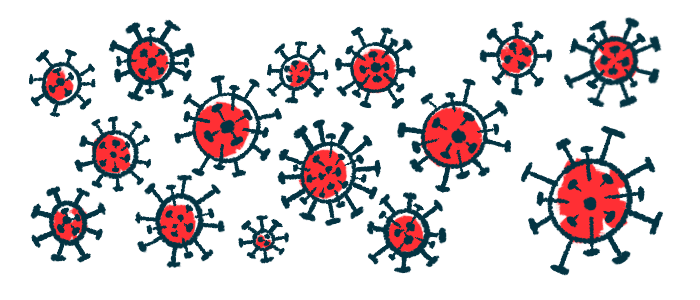PNH follows case of asymptomatic COVID-19 in man: Study
Researchers recommend further study of phenomenon

Paroxysmal nocturnal hemoglobinuria (PNH) developed in a young man after an asymptomatic infection with SARS-CoV-2, the virus that causes COVID-19, a recent case study reports.
The study, “Paroxysmal nocturnal hemoglobinuria in a patient post COVID-19 virus infection: A case report with literature review,” was published in Clinical Case Reports.
Most PNH cases are caused by mutations in the PIGA gene in hematopoietic stem cells (HSCs), those in the bone marrow responsible for giving rise to new blood cells.
The mutations aren’t inherited and arise spontaneously. They lead to a deficiency in proteins that normally signal to the immune system that the cells are a healthy part of the body. Without these proteins, the complement system — a group of immune proteins — attacks blood cells, particularly red blood cells, causing their destruction.
Complement activation is also significant in the development and severity of COVID-19, a disease caused by the SARS-CoV-2 virus.
PNH after COVID-19
Researchers in Saudi Arabia described the case of a 28-year-old man who developed PNH after being infected by SARS-CoV-2.
Although he tested positive for the virus, he didn’t develop COVID-19 symptoms, but went to a doctor with severe abdominal pain a few weeks later.
CT scans of his abdomen revealed splenic infarction, wherein blood flow to the spleen is compromised, leading to tissue damage. The man’s spleen was surgically removed and examined, which confirmed the infarction with no signs of cancer.
Blood tests showed he had low numbers of red blood cells (anemia) and platelets (thrombocytopenia), both signs of PNH.
A Coombs test was negative, ruling out antibody-mediated red blood cell destruction. Other conditions associated with anemia were also excluded, including hemolytic uremic syndrome (HUS).
A bone marrow biopsy showed the man had mild hypocellularity for his age, or a reduced number of hematopoietic cells relative to the amount of bone marrow fat.
A cell-based analysis revealed a deficiency in CD59, one of the molecular identification proteins that prevent complement-mediated red blood cell destruction.
“These findings are indicative of a diagnosis of PNH,” the researchers wrote.
In the hospital, the man had an intracerebral hemorrhage, or bleeding in the brain, a common cause of stroke. Because standard PNH medications that block complement activation weren’t accessible, he was treated intravenously with immunoglobulin (IVIG), steroids and other supportive blood products. Despite treatment, he died from a blood clot in his pulmonary arteries, the blood vessels that connect the lungs to the heart.
“Our case report presents a rare occurrence of PNH following COVID-19 infection, which have been rarely reported in the literature,” wrote the researchers, who recommended that the incidence of COVID-19-related PNH with COVID-19 infection and low blood cell counts be studied.








